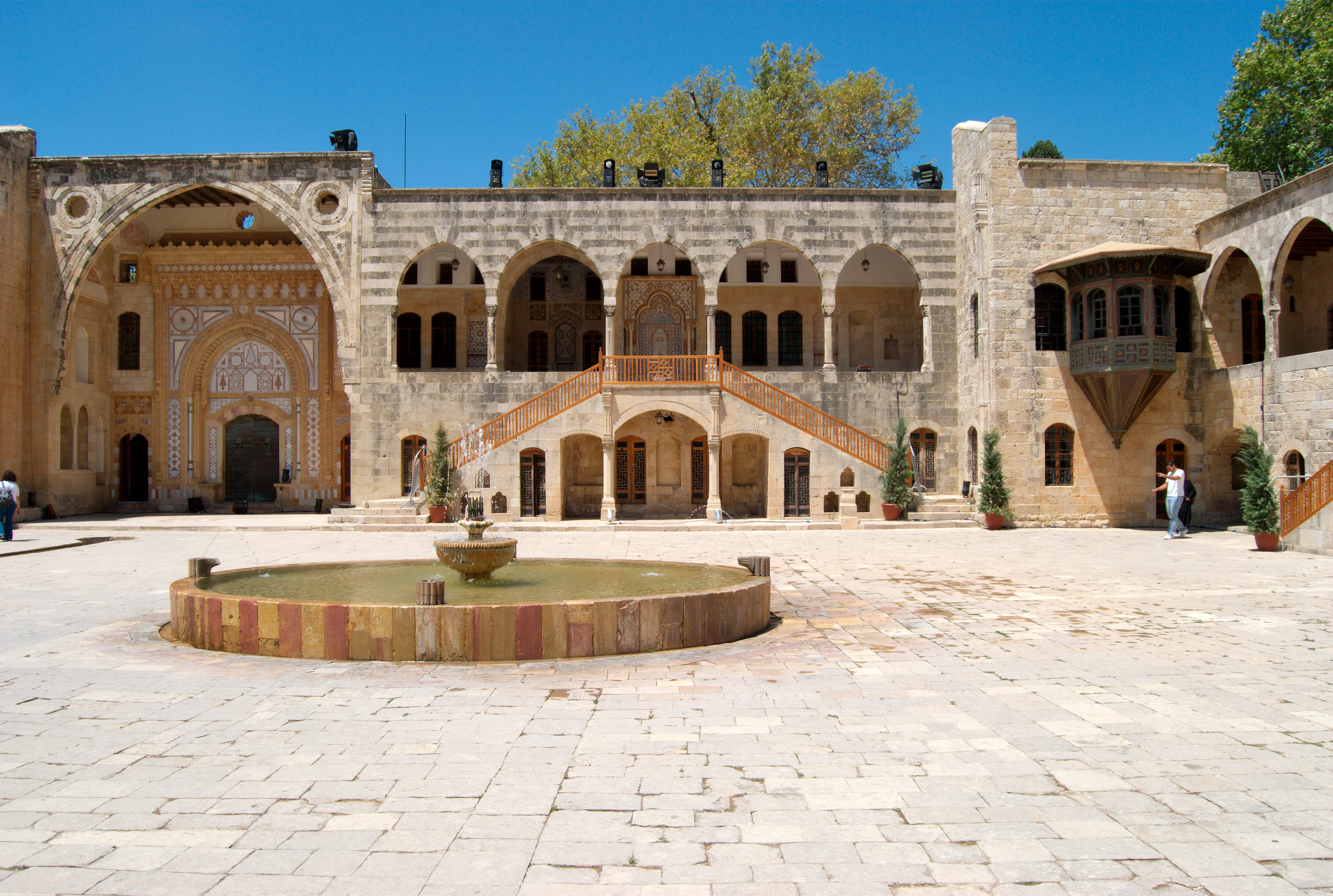|
Beitedine
Beit ed-Dine ( ar, بيت الدين), also known as Btaddine ( ar, بتدين) is a small town and the administrative capital of the Chouf District in the Mount Lebanon Governorate in Lebanon. The town is located 45 kilometers southeast of Beirut, and near the town of Deir el-Qamar from which it is separated by a steep valley. It had 1,613 registered voters in 2010 and its inhabitants are predominantly Christians from the Maronite, Melkite and Greek Orthodox denominations. Beit ed-Dine's total land area consists of 244 hectares and its average elevation is 860 meters above sea level. The town is well known for the Beiteddine Palace, which hosts the annual summer Beiteddine Festival. History Ottoman era Emir Bashir II of the Shihab dynasty, who later became the ruler of the Mount Lebanon Emirate, started building the palace in 1788 at the site of the Druze hermitage (hence the palace's name, translating as "''House of Faith''"), indicating that the town was initially popula ... [...More Info...] [...Related Items...] OR: [Wikipedia] [Google] [Baidu] |
Chouf Mountains
Chouf (also spelled Shouf, Shuf or Chuf, in ''Jabal ash-Shouf''; french: La Montagne du Chouf) is a historic region of Lebanon, as well as an administrative district in the governorate (muhafazat) of Mount Lebanon. Geography Located south-east of Beirut, the region comprises a narrow coastal strip notable for the Christian town of Damour, and the valleys and mountains of the western slopes of Jabal Barouk, the name of the local Mount Lebanon massif, on which the largest forest of Cedars of Lebanon is found. The mountains are high enough to receive snow. History The Emirs of Lebanon used to have their residence in Chouf, most notably Druze Emir Fakhr al-Din II, who attained considerable power and acted with significant autonomy from the Ottoman Empire in the 17th century. He is often referred to as the founder of modern Lebanon, although his area of influence and later control included parts of current Israel and Syria. Other emirs include the more controversial Bachir Chehab I ... [...More Info...] [...Related Items...] OR: [Wikipedia] [Google] [Baidu] |

